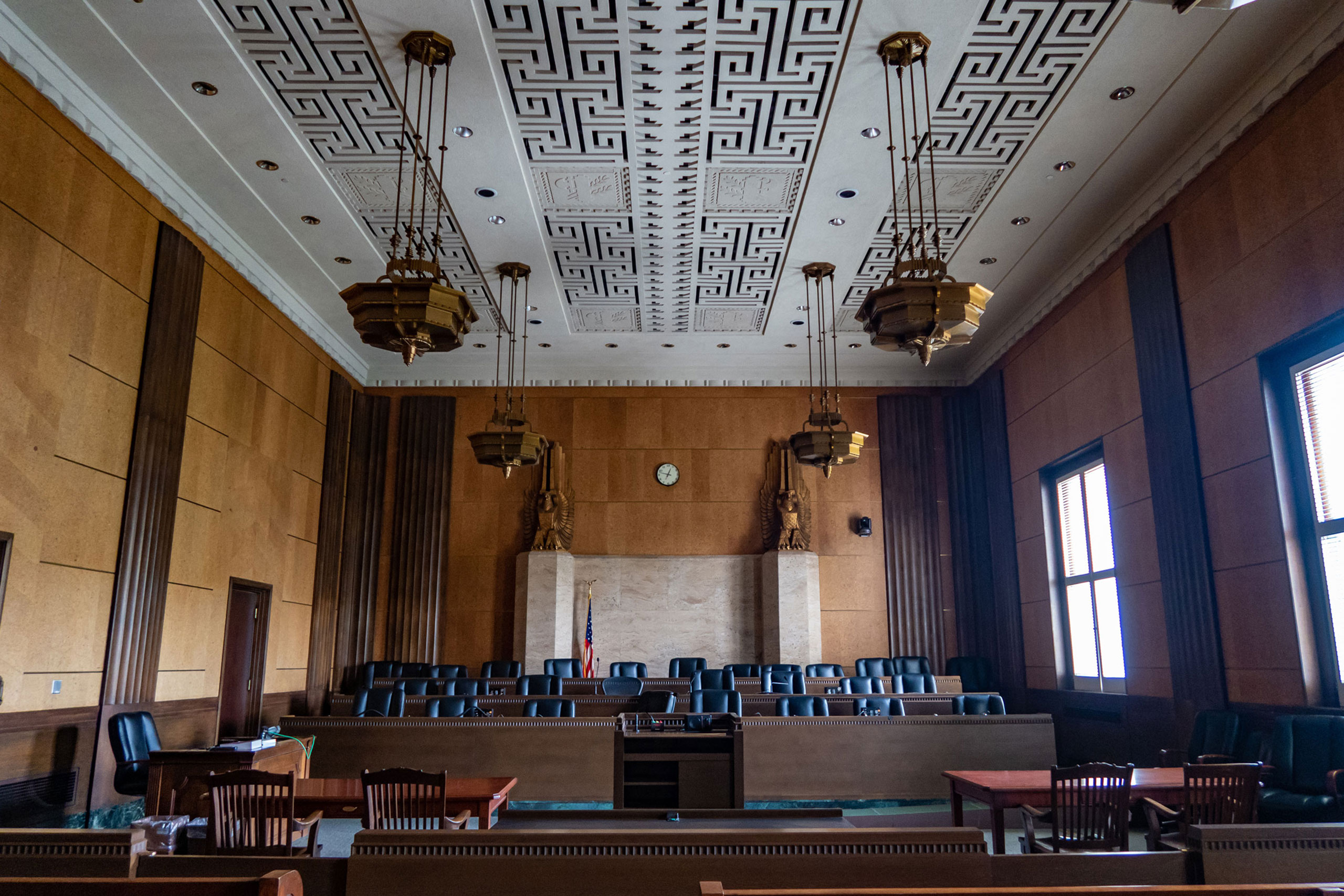An arrest occurs when the police take an accused into custody, or the accused is no longer free to leave. “Being arrested is an extremely frightening experience that can quickly turn tragic.” During an arrest, it is vital to stay calm, follow the instructions of the police officer, and remain silent. Resist the urge to respond aggressively if arrested, which can result in additional charges.
Investigation and Allegations in New Jersey’s Criminal Legal System
A police investigation has already begun before an arrest. Police investigations can vary in duration, ranging from several months to years, or they can be as brief as the time it takes to arrest a suspect after allegations are made. Generally, the length of the police investigation will depend on the nature of the offense and the strength of the evidence collected by law enforcement.
Charges will be issued against the accused when law enforcement determines probable cause exists. The charges will be issued on a complaint warrant or a complaint summons.
Complaint-Warrant vs. Complaint-Summons
The decision whether to charge a complaint-summons or complaint-warrant has a significant impact on you. You will be released on personal recognizance if a complaint summons is issued. Released on personal recognizance means you will be released without any released conditions, except for appearing for court when required.
If a complaint warrant is issued against you, you will be detained for at least 48 hours. During the 48 hours, pretrial services–an arm of the court system–will prepare an assessment for the court that will include recommendations of release conditions or to detain you. Additionally, the Prosecutor’s Office will determine whether they want to file a motion to detain you in county jail pending the resolution of your case.
Detention Hearing in New Jersey’s Criminal Legal System
Suppose the Prosecutor’s Officer has filed a motion to detain you pending the resolution of your case. In that case, you have the right to a detention hearing. Your detention hearing will be heard before a judge decides if you will be released on conditions or detained. This stage is not a trial. At this stage, Cherry Law Firm is focused on getting you released from jail. In some cases, that means to attack the Stages case and evidence. In other cases, it is to focus on other information, like:
- Employment History (including current employment)
- Family History
- Education History
- Physical and/or Mental Treatment
- Substance Abuse Treatment
- Military Experience
- Current Residence
- Volunteer Work
- Community Involvement
It is crucial to provide your attorney with as much information as possible to help support their argument for your release. If the judge decides to release you, the judge will impose conditions of release. Conditions of release may include:
- Reporting to Pretrial Services as directed.
- Refraining from committing a crime.
- Refraining from possessing a weapon.
- Staying away from an alleged victim.
- Staying away from the suspected crime scene.
First Appearance
You are entitled to a first appearance if you have been charged with a crime. A first appearance is the first legal hearing scheduled after you have been arrested. You will be formally advised of the criminal charges against you at the first appearance. Additionally, the judge will notify you of certain rights you have throughout your legal matter.
Pre-Indictment Conference (PIC)
Typically, a pre-indictment conference is the first proceeding after your first appearance. At the pre-indictment conference, the prosecutor will advise the court if limited discovery has been provided to you and your defense counsel. Additionally, the prosecutor will inform the defense counsel assigned to your case. Suppose you desire to resolve your matter through a plea. In that case, this information is essential because you and your defense counsel will know who to contact about a possible plea offer. Fortunately, one of the goals of the pre-indictment conference is to see if your case can come to an early resolution.
Early Disposition Conference (EDC)
Like the pre-indictment conference, the early disposition conference, commonly called EDC, is an opportunity for your attorney to speak to the prosecutor to resolve your case. This conference can be simple, but also very important. Generally, the prosecutor will make its best offer in hopes of resolving your case. Additionally, you may request missing discovery that can assist you in deciding if you want to resolve your case. If you choose not to resolve your case, the case will proceed to the grand jury.
Grand Jury and Indictment
If you have been charged with an indictable offense, you are entitled to have your case presented to a Grand Jury. The Grand Jury comprises 23 individuals randomly selected from the county you were charged. Those 23 individuals are brought to a jury room with the prosecutor and court sheriff. The prosecutor usually presents their case to the grand jury by calling witnesses. The witness that the prosecutor generally calls is a law enforcement officer who is involved in the case.
After the prosecutor presents their case, the Grand Jury will deliberate to determine whether, based on the evidence presented, probable cause exists to establish that you committed the alleged crime(s). Suppose most of the Grand Jury believes there was enough evidence that you committed the alleged crime. In that case, they will return a “true bill” of an indictment. The “true bill” of an indictment is the written decision that states the charges the Grand Jury believed sufficient evidence was presented to establish probable cause that you committed the offense(s).
Arraignment
If you have been indicted, the first court proceeding that will be scheduled is an arraignment. At an arraignment proceeding, you will be formally advised of the charges you were indicted on. Additionally, you can enter a guilty or not guilty plea and acknowledge that you and your attorney have received discovery. Finally, the prosecutor will advise the court of their plea offer(s).
Plea Bargain
The prosecutor will make a plea offer to resolve a case in nearly every case. Once a plea offer has been made, plea negotiations will begin. Generally, the prosecutor’s plea offer will recommend a reduced sentence in exchange for a guilty plea. During the plea negotiations, your defense counsel will offer mitigating information to the prosecutor in hopes that the prosecutor might agree to an even further reduced sentence, downgraded charges, or a complete dismissal of your case.
Status Conferences
Status conferences are scheduled to ensure your case will continue to a plea or trial. During status conferences, the judge will want to know what is going on with your case, whether it be continued plea negotiations, requests for additional discovery, or preparation for motion practice and trial. At these status conferences, you can enter a guilty plea. If you do not want to plead guilty, you can file motions and/or cut your case off for trial.
Motions in New Jersey’s Criminal Legal System
There are several types of motions to determine whether evidence is admissible at trial or will be allowed to be shown to the jury. The judge will schedule briefing dates, requiring your attorney and prosecutor to file written briefs on a specific due date. These briefs include the legal basis for why a motion should be granted or denied.
Some motions may also require testimonial hearings. At these hearings, the prosecutor and defense counsel may call witnesses to appear before the court to testify. These witnesses will provide the court with evidence establishing specific facts relevant to the legal issue.
After all testimonial hearings and legal arguments have been completed, the judge will issue a written or oral decision. The prosecutor may change the plea offer based on the judge’s decision. Before filing a motion, you must consider whether the prosecutor can change the plea offer to a harsher one.
Trial in New Jersey’s Criminal Legal System
- Jury Selection: In New Jersey, criminal trials often involve a jury. A jury is selected by both the prosecutor and your defense counsel to question potential jurors. Based on the potential jurors’ answers, the prosecutor and your defense counsel will use a limited number of strikes to kick potential jurors off the jury.
- Opening Statement: Once a jury has been selected, the prosecutor and your defense counsel will present opening statements. Opening statements outline what both sides believe the evidence will prove.
- Presentation of Evidence: In a trial, evidence is presented through a witness. Evidence could be the witness’s testimony, physical evidence, or other relevant information. Your defense counsel will be able to cross-examine all the witnesses the prosecutor calls and challenge the presented evidence. Once the state has rested or has no more evidence to show, your defense counsel can call their witness, including you. You have the right to testify at your trial. However, just like your defense counsel can cross-examine the prosecutor’s witnesses, the prosecutor can cross-examine your defense counsel’s witnesses.
- Closing Arguments: Both sides can summarize their case during the closing arguments. This is the last time the jury will hear from either side, so your defense counsel must highlight the evidence and testimony that supports your position.
- Jury Instructions: The judge will read the jury instructions to the jury. The jury instructions are a written document that provides the jury with the law they may consider in the case and the standards they should apply to reach their verdict.
- Jury Deliberation: After hearing the jury instructions, the jury will begin deliberating in the jury deliberation room. During the deliberation, the jurors will discuss the evidence and reach a unanimous verdict on whether you are guilty.
- Verdict: Once the jury has reached a verdict, they will return to the courtroom and announce their verdict. If no verdict was reached, the case would result in a hung jury, and the case might be retried by a new jury.
Sentencing Within New Jersey’s Criminal Legal System
You will be sentenced if you have been found guilty by a jury or have pleaded guilty. Before sentencing, you must complete a pre-sentencing interview, resulting in a pre-sentencing report. The pre-sentencing report will be used by the judge, the prosecutor, and defense counsel during your sentencing. Before your sentencing, it is essential to review the pre-sentencing report to ensure that it is accurate. Once you have been sentenced, you will have the right to appeal any legal decision and the sentencing.




0 Comments